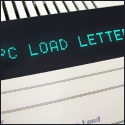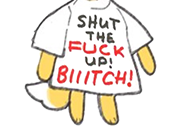|
Go to musicradar for a bajillion free samples in all the genres of the rainbow. http://www.musicradar.com/news/tech/free-music-samples-download-loops-hits-and-multis-627820
|
|
|
|

|
| # ? May 22, 2024 18:16 |
|
^ MusicRadar is definitely the best place to dip by for samples. I also recommend you go through reddit.com/r/edmproduction or reddit.com/r/wearethemusicmakers - there's heaps of people giving away stuff pretty often. It's also a bit dodgy, but many Splice Projects also are ripe with stuff for the pickings. Here's something I did! I revamped my last tune into a new version. It's similar but with new bits. Always fun to remix yourself. https://soundcloud.com/glxe/red-moon-eclipse
|
|
|
|
First time posting in the music forum and I've been playing with FL Studio 12 over the last week. I'm making some (12-32 bars or so) things which I quite like but I have trouble making complete tracks or even transitioning from one section to another. Any advice for someone to overcome their meticulously slow process so they can produce a basic outline for a complete track? Pretty vague, I know.
|
|
|
|

|
|
|
|
Thanks!
|
|
|
|
Beige posted:First time posting in the music forum and I've been playing with FL Studio 12 over the last week. I'm making some (12-32 bars or so) things which I quite like but I have trouble making complete tracks or even transitioning from one section to another. Load a song you like the structure of into your DAW and just take notes on how long the intro is / chorus / verse etc and when they drop elements out or bring them in. Then replicate it!
|
|
|
|
This is good advice, but it definitely works better for some genres than others. A lot of the stuff I love is weird enough that it's hard to find a "structure", or it has vocals (and I don't sing). Maybe it's just me, but I find it really hard to use the structure of a song that has vocals for an instrumental track without it sounding like a cheesy midi-version of a song that's supposed to have vocals. You either substitute a lead synth for the vocal "parts" and it sounds cheesy or you drop those parts and it sounds like a backing track. Of course, part of it is also just that I suck.
|
|
|
|
This is probably going to sound very dumb to people who make dance music, which is almost entirely 4/4, but does anybody have any experience making stuff with alternative time signatures? I've put together some catchy beats in 3/8 and 11/4 (just to be a masochist if I ever end up playing them in a set). So far the plan is to have the Intro/verse sequence in these 'odd' rhythms with the main chorus/loop dropping into a more conventional 4/4.. My theory is that this might have some impact? Who knows, experimenting is fun.
|
|
|
|
Ocrassus posted:This is probably going to sound very dumb to people who make dance music, which is almost entirely 4/4, but does anybody have any experience making stuff with alternative time signatures? http://boards.straightdope.com/sdmb/showthread.php?t=615035 this forum thread has a lot of examples of songs that change time signatures, sounds like a lot of them are similar to what you are planning. Have at it!!
|
|
|
|
You could try experimenting with polyrhythms, something along the lines of a 4/4 kick and then have your perc patterns like hi-hats run in 6/8 so it resolves after 12 bars (for a really straightforward example, obviously you can go nuts if you want to).
|
|
|
|
NonzeroCircle posted:You could try experimenting with polyrhythms, something along the lines of a 4/4 kick and then have your perc patterns like hi-hats run in 6/8 so it resolves after 12 bars (for a really straightforward example, obviously you can go nuts if you want to). This is a pretty cool idea. I like to have claps just before every other beat to give a nice 'groove' to my percussion, and with a 5/8 that I've been trying I have instead chosen to put a clap on the final kick. Add some side chained bass and synth accents on beats 3 and 5 and that's pretty much where I am right now with that particular track. It's hard to know where to take the weirder stuff sometimes, and like another poster was saying above, you can feel like you've got a good foundation but not know how to transform it into a full song. My personal style fits somewhere in between big 'anthems' and hardstyle drum breakdowns.
|
|
|
|
baby's first track https://soundcloud.com/beige-333739734/b11-1
|
|
|
|
It can also help to split your odd signatures into "chunks" when doing your melodies so 5/4 becomes 3 beats and 2; Your riff could then go du-du-DA du-DA (imagine a gated trancy supersaw or whatever where the "DA" is the opened gate accent)
|
|
|
|
Ocrassus posted:This is probably going to sound very dumb to people who make dance music, which is almost entirely 4/4, but does anybody have any experience making stuff with alternative time signatures? Venetian Snares likes to mess with unusual time signatures, mostly 7/4 or 7/8. He's not the most accessible artist and certainly not to everyone's taste, this album is probably a good intro and has a lot of 7s: https://open.spotify.com/album/2FtXSFVp4mDIM4o72fbWnM
|
|
|
|
NonzeroCircle posted:It can also help to split your odd signatures into "chunks" when doing your melodies so 5/4 becomes 3 beats and 2; This is essentially what I've done. It sounds groovy but I guess it lacks that big 'punch' that I like to go for with my music. It seems more suited to minimalistic genres like techno, so I'm trying all sorts of stuff to see if I can get that big melody in there.
|
|
|
|
zeldadude posted:Load a song you like the structure of into your DAW and just take notes on how long the intro is / chorus / verse etc and when they drop elements out or bring them in. Then replicate it! To elaborate on what I said earlier, whenever I get in the mood to make something cheesy I start by doing this.. but then I come to the part where they start singing and I just have no idea what to fill it with. Does anyone have any ~hot tips~ on making instrumental "verses"? I'm swimming in unfinished ideas/loops like this: https://soundcloud.com/yourcomputer/aaa and since they're so cheesy and formulaic it's really easy to make the intro/chorus/outro/variations... but I always get stuck on the "verses". I feel like it should be easy to make them into finished songs, but I always get stuck on the same thing.
|
|
|
|
Your Computer posted:To elaborate on what I said earlier, whenever I get in the mood to make something cheesy I start by doing this.. but then I come to the part where they start singing and I just have no idea what to fill it with. Does anyone have any ~hot tips~ on making instrumental "verses"? I can't quite answer your question because every producer solves it a little differently. Rest assured that this is a problem that people at the very top continue to struggle with. Otherwise all I have to say is that I love your sound cloud man. Lots of great ideas there and it actually sounds well produced. Keep it up!
|
|
|
|
There's a lot of fl studio 12 tutorials but all of them seem to assume you have some kind of knowledge of FL studio because they start with a bunch of windows open that aren't there when I open it. So uh, what's a good basic tutorial that assumes I know nothing and am an idiot (an easy assumption to make because it is true)?
|
|
|
|
|
I've been using various DAWs (Reason 2.5 then 3, onto Ableton Live and now settled on Cubase) for the last 12 years and every time I've tried FL I find it totally inscrutable. Some really good stuff has been made with it, the synths look fascinating but there's something about the workflow that just makes my brain go "what?". Its funny how it keeps getting labelled as some kiddie/scrub DAW because I find it looks super complex. https://youtu.be/NU3Yi9zqYas Starts off with everything open, go to six mins in and he starts from scratch
|
|
|
|
Anatharon posted:There's a lot of fl studio 12 tutorials but all of them seem to assume you have some kind of knowledge of FL studio because they start with a bunch of windows open that aren't there when I open it. I'm learning FL Studio 12 from scratch and it's a very slow process for me. The scarcity of complete beginner tutorials is very evident so you kind of have to watch next-level videos and pick up the habits and procedures of the user from watching them. If I come across any suitable videos I'll post them here for you.
|
|
|
|
If you're starting from scratch, it's worth the money to buy a course from Groove3 or MacProVideo (or better yet, get a subscription)
|
|
|
|
Just to make sure all the bases have been covered, have you looked though the official channel, and the manual?
|
|
|
|
I learned fl quite easily (although the pattern management thing is just unnecessary imho). It makes it quite easy to make some types of things and quite difficult to make other types of things.
|
|
|
|
Troglyfe posted:Just to make sure all the bases have been covered, have you looked though the official channel, and the manual? I'd second this. I've been using FL Studio for like 8 years now and I just learned about the ctrl+b function the other day from reading the manual. Tons of good info in there (obviously.) Edit: also, to the guy asking about what to do without vocals, do you have any sort of microphone? Record yourself saying some random poo poo and then throw a vocoder on that bitch! Guaranteed to be a good time if nothing else.
|
|
|
|
Beige posted:baby's first track good job! I like it!
|
|
|
|
Beige posted:baby's first track Can't believe I missed this. I love the vocal slicing in the latter half of the track. Followed, if that's your first track, I'm looking forward to what else you come up with!
|
|
|
|
Beige posted:I'm learning FL Studio 12 from scratch and it's a very slow process for me. The scarcity of complete beginner tutorials is very evident so you kind of have to watch next-level videos and pick up the habits and procedures of the user from watching them. He tends towards 'very advanced*' but SeamlessR is a super cool dude who makes a huge amount of FL youtube videos. Including full track streams - he goes pretty quick, but if you can follow along then you'll be learning some seriously cool stuff quickly. * Apparently Steve Duda said Seamless knew more about engineering than a lot of really famous producers.
|
|
|
|
SciFiDownBeat posted:good job! I like it! Ocrassus posted:Can't believe I missed this. I love the vocal slicing in the latter half of the track. Followed, if that's your first track, I'm looking forward to what else you come up with! Thanks very much for the praise! Here's track two: https://soundcloud.com/beige-333739734/b14-2
|
|
|
|
quick five minute clipping beat: https://soundcloud.com/mathbonus/greens
|
|
|
|
There's a long way to go yet but I'm having a lot of fun playing around and experimenting with things. https://soundcloud.com/beige-333739734/b17
|
|
|
|
It's got good bones, but those sound effects are rupturing my eardrums.
|
|
|
|
Thanks. Yeah I'm pretty much like a mother with an ugly child.
|
|
|
|
I've been thinking about dipping my toes into music production for a while, and I guess now's as good a time as any. All of the info is kind of overwhelming, but I guess my first question would be - if I know absolutely zero about what I'm attempting to do, is free software the way to go? I'm a little hesitant to start dropping money in case I spend a few months bashing my head against a wall and figure out it's just not for me, but I also don't want to get a free program with crappy support / no good tutorials or learning resources, making it more difficult than it should be. Is it worth shelling out cash on software in my position, or is there enough info floating around on the free stuff to make it work without huge headaches the entire way? I tend to dig more experimental / ambient / downtempo stuff, so at least in the foreseeable future I probably won't be worrying about actual instruments and vocals and stuff, if that makes a difference.
|
|
|
|
I'd buy a cheap-ish midi controller that comes with Ableton Live Lite, tactility makes making music a lot more fun and Live is really well documented/tutorialised. Then download some free vst instruments/effects. The link I posted at the top of this page has a lot of ambient/downtempo loops and sounds to play with, and live comes with a bit to get you started too.
|
|
|
|
Not sure if this is better asked here or the "How do I re-create X sound" thread but I am looking for steps on how to make a synth sound like this: @3:12 is when it kicks in https://soundcloud.com/dawnoflight/zunorodo-one-heck-of-a-ride The sound is really full, airy, saw chords (probably layered) and it sounds like there is heavy side-chaining on the kick to give it that pumping sound. I am using Ableton and have both Sylenth and Massive (more comfortable with Massive but either will work).
|
|
|
|
Full Fathoms Five posted:I've been thinking about dipping my toes into music production for a while, and I guess now's as good a time as any. All of the info is kind of overwhelming, but I guess my first question would be - if I know absolutely zero about what I'm attempting to do, is free software the way to go? I'm a little hesitant to start dropping money in case I spend a few months bashing my head against a wall and figure out it's just not for me, but I also don't want to get a free program with crappy support / no good tutorials or learning resources, making it more difficult than it should be. Is it worth shelling out cash on software in my position, or is there enough info floating around on the free stuff to make it work without huge headaches the entire way? Free DAWs are doable but many are considerably worse knockoffs of the real thing. They work, but there's less support, documentation and tools available. It may sound minor, but when something's broken or doesn't make sense, it's a roadblock between you & creativity. It's best to work in a way with as few potential roadblocks as possible. A lot of paid DAWs have trials (Live Lite is particularly good) which you should checkout. I'd also recommend watching youtube a lot to see which workflow makes the most sense to you. Ableton and FL Studio seem to dominate the YT channels I see, with Logic and Cubase trailing far behind.
|
|
|
|
Full Fathoms Five posted:I've been thinking about dipping my toes into music production for a while, and I guess now's as good a time as any. All of the info is kind of overwhelming, but I guess my first question would be - if I know absolutely zero about what I'm attempting to do, is free software the way to go? I'm a little hesitant to start dropping money in case I spend a few months bashing my head against a wall and figure out it's just not for me, but I also don't want to get a free program with crappy support / no good tutorials or learning resources, making it more difficult than it should be. Is it worth shelling out cash on software in my position, or is there enough info floating around on the free stuff to make it work without huge headaches the entire way? IMO, the way that it worked for me was by trying out a trial version of Reason 5. There was a 20 minute time limit, and you couldn't save/export anything. At the time it was frustrating, but in hindsight it was actually the perfect way to learn. It forced me understand basic sound design principles, and then because I couldn't save any patches, I had to recreate them over and over again. Then, once I could do that with east, I could spend time on composition, making tons of little loops and figuring out how they work. After the time limit hit, I was forced to think of something else. It was a weird way to learn, but it really worked for me! And as an aside, since you said you have no experience: the way I see electronic music, it's half engineering, half creativity. If you're a natural engineer type, you'll quickly pick up the basic principles of sound design and creating different sounds. But seeing that blank canvas on your screen can be really daunting - it's overwhelming at first and the amount of freedom is a bit much. Especially if you have "favorite" artists that have years of training on you, trying to replicate them can be really frustrating when it doesn't work out. If you're the natural creative type, sound design will be a bit boring and maybe you'll just dive straight into patches and pre-selected sounds. Perhaps become a sample god. However, doing this can lead to really uninteresting results. The patch that you're using is the same thing that everyone uses - there's nothing interesting sonically about your sound. The trick is to combine the two! The above is just my own opinion and from things that I have observed. Other people may disagree. Perhaps start out by downloading a free version of a popular DAW (Reason, Ableton, etc) and see if you are comfortable with the learning curve. Play around with basic sounds, and make tons of little loops. I personally don't use any hardware/3rd party VSTs because I really have never needed to. Everything I use is just built into it, and it's still absolutely wild the amount of things you can do with any modern DAW. It really just comes down to how nice the workflow is for you personally and if you like it enough to spend hours of your life devoted to it. And unrelated to the above - I picked up a Dulcimer and was inspired enough to make a track. https://soundcloud.com/brknbrns/dulcimer
|
|
|
|
Not really the perfect thread to ask, but I didn't know which other thread to use so.. Can some music theory nerd tell me why the chord progression Cm - G# - A# - G... works? I mostly use the natural minor scale, which would make it Cm - G# - A# - Gm but for some reason, even if the change is small it sounds more "intriguing" to me with a major at the end. As far as I can tell there is no scale that fit all those chords, but the first three fit a natural minor while the last can be found in the harmonic minor. Scales and chords and stuff are hard And in advance, yada yada "whatever sounds good" etc. I just want to understand why it sounds good. Also I really want a better understanding on scales and chords in general, since it's really hard to noodle along to a chord progression that doesn't follow a scale..
|
|
|
|
Your Computer posted:Not really the perfect thread to ask, but I didn't know which other thread to use so.. As you said, you are firmly in the key of C minor / Eb major. This is a small thing, but writing down your chord progression as Cm - Ab - Bb - G would make more sense. You don't usually mix #'s and b's unless you have to. In a harmonized major scale, the fifth step is, relative to the tonic, generally the most unstable chord. It is the chord that most strives to be resolved back to the tonic. I would go as far as saying that this movement is one of the (if not THE) most fundamental harmonic movements in western music theory. This has a couple of different reasons. In C major, the fifth step is a G chord, and it contains the notes G - B - D. In the context of C as your tonic, the D is slightly dissonant. The B, as the major seventh of the scale, and being situated a half step (or minor second) below the C, is very dissonant. The B here functions as what's called a leading note, because it so badly needs to be resolved up half a step to C. A G minor chord (G - Bb - D), which is what you would get from sticking to the natural C minor scale, is missing this exact note. The chord doesn't feel like it needs to be resolved as strongly as the G major. That is why the harmonic minor scale was introduced in the first place. Like the name suggests, it used to be used more in a harmonic context, and less in a melodic one. Now, maybe you're even using a G7 (G - B - D - F). The interval between B and F is an augmented fourth/diminished fifth, or tritone. This interval is also on the dissonant end of the harmonic spectrum, giving the G7 chord even more tension. To summarize, making the chord appearing on the fifth step of a scale a major, even if it "should" be a minor is a very common thing. It maximizes the harmonic tension right before you release it by arriving back at the tonic. Even if you don't. It's all about expectations, really. Which could be another reason why the G major (containing a note that doesn't naturally appear in the key of C minor) might sound more intriguing as you say. There's a little something in there that is unexpected and thus sounds more interesting. I hope this makes any sense at all. Wrote it up at work. There are probably many more reasons why your chord progression works. The Yellow King fucked around with this message at 13:33 on Jun 7, 2016 |
|
|
|

|
| # ? May 22, 2024 18:16 |
|
The Yellow King posted:That is why the harmonic minor scale was introduced in the first place. Like the name suggests, it used to be used more in a harmonic context, and less in a melodic one. Excellent post all around, I really appreciate it! I've done a bunch of reading on this sort of stuff but I guess it hasn't stuck very well because everything you said sounds familiar to me, I just didn't think about it in context. Now it definitely makes more sense to me Also, I'm really bad at notation and constantly mess up sharps and flats so I usually just stick to sharps when thinking to myself. Sorry.
|
|
|


























